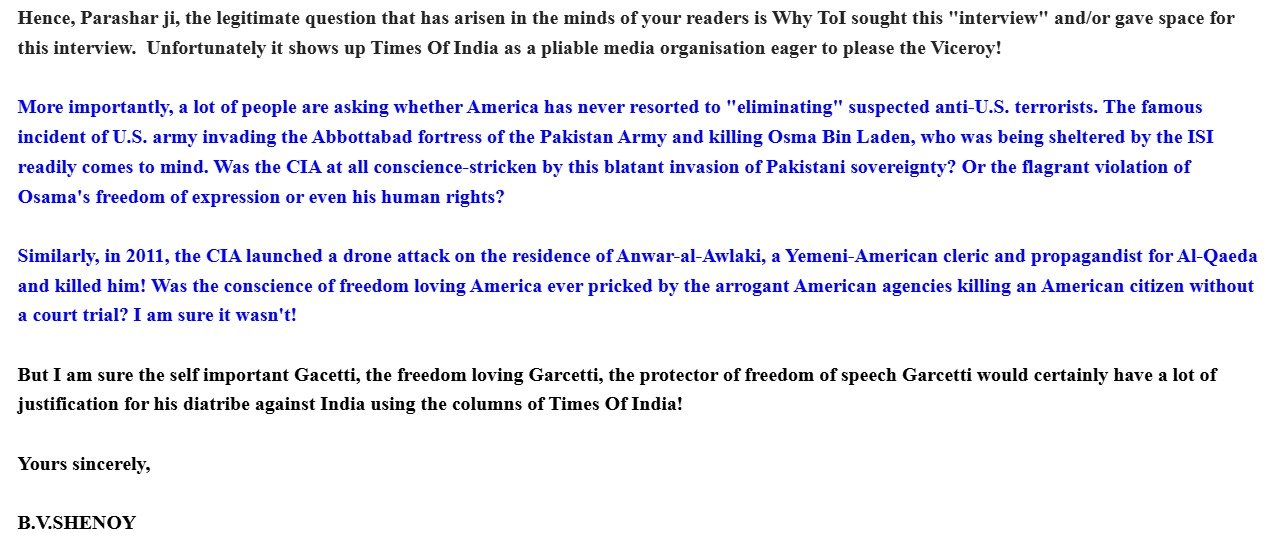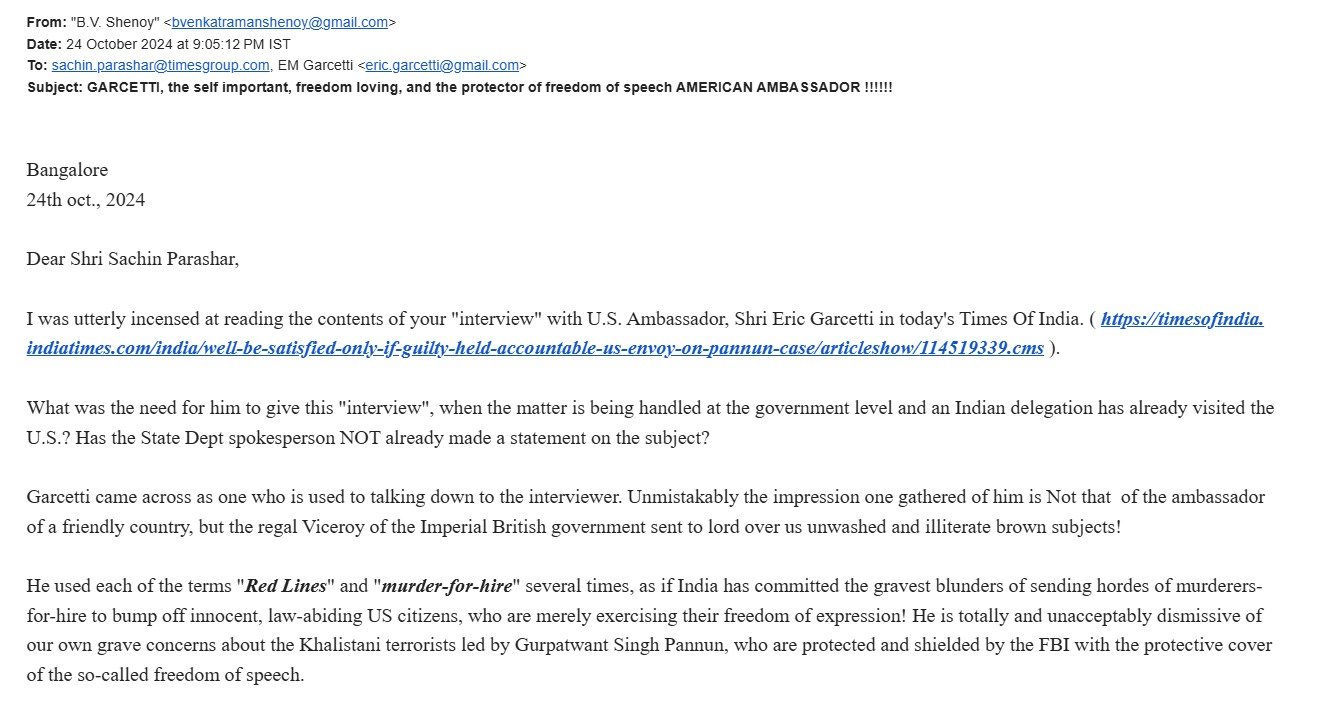NEW DELHI: In a letter addressed to The Times of India and its journalist Sachin Parashar, a reader B.V. Shenoy has expressed outrage over the interview with U.S. Ambassador Eric Garcetti published in the paper.
Shenoy’s criticism centres on the perceived tone and content of the interview, questioning the need for Garcetti to address sensitive matters already under government review as well the publication’s intent to write this interview when there are question marks over the role of the CIA in the interference into 2024 Lok Sabha elections in India through social media intermediaries or formations and the fall of governments in South Asia, including Bangladesh.
Shenoy’s viral letter, highlights concerns regarding the U.S. approach to Khalistani separatists, specifically mentioning Gurpatwant Singh Pannun, who Shenoy claims enjoys protection from U.S. authorities while posing a threat to India.
Shenoy questioned why The Times of India provided a platform for what he viewed as a one-sided narrative that undermined India’s legitimate security concerns.
Shenoy further provocatively points out historical instances where the U.S. has conducted military actions to eliminate perceived threats, such as the killing of Osama bin Laden in Pakistan and the drone strike on Anwar al-Awlaki, an American citizen linked to Al-Qaeda.
He challenges the notion of American moral superiority, implying a double standard when it comes to international law and human rights.
Shenoy argues that Garcetti’s remarks conveyed an air of superiority, likening him to a colonial figure rather than a diplomat of a friendly nation.
The reader took particular issue with the ambassador’s repeated use of terms like “red lines” and “murder-for-hire,” suggesting that these phrases unfairly portrayed India as a country complicit in violence against U.S. citizens.
ALSO READ: Outrage against The Print for ‘leaking’ Sheikh Hasina’s location; journalist doesn’t respond
The reader concludes with a call for The Times of India to reconsider its editorial choices, suggesting that allowing such an interview to take place reflects poorly on the newspaper’s independence and integrity.
Shenoy’s letter has resonated with many readers, raising important questions about the role of media in international relations and the balance of power in diplomatic discourse.
The backlash against Garcetti’s comments underscores the sensitivity surrounding issues of sovereignty, security, and the framing of narratives in a complex geopolitical landscape.
ALSO READ: Supreme Court declines status quo on demolition of religious structures in Gujarat’s Gir Somnath
As discussions continue, both the media and diplomatic channels will need to navigate these challenging conversations carefully, ensuring that all voices are heard while maintaining respect for national concerns.











